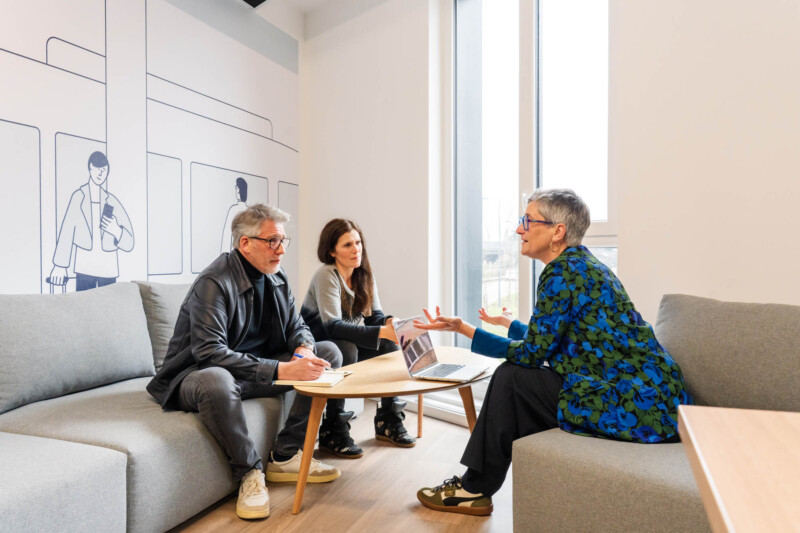Internship interview: how to prepare effectively?
Whether you are a student aiming for your first skill in a company, or a parent looking for the best advice to help the candidate support their young professional, this article is for you.

You are at the stage of searching for an internship to validate your year? You’ve applied, your CV and cover letter hit the mark, and an interviewer calls you to schedule the meeting. Great, right? But then, stress sets in. You begin to ask yourself: How can you properly prepare for this internship interview?
The goal? To give you all the keys to turn apprehension into confidence and help you land that job you’re hoping for. Together, we will break down all the steps of the preparation: from researching the company to managing stress, as well as going through the list of questions and frequent explanations.
The key step: research the company thoroughly
The first step toward a successful hiring process is knowing the company well.
Before even thinking about your answers, you need to become a detective. The recruiter will test your interest in the company and the position. One of the first pieces of advice given is to know the organization’s activity inside out.
Which crucial elements should you look for?
- Core business: What does the company actually do? Who are its clients? What is its position in the market?
- News and recent projects: Mentioning these shows that you’ve done your homework.
- Values and team culture: Are they aligned with your background as a candidate or with your ambitious professional vision? Recruiters look for a good fit.
The pitch stage: tell your background and experiences in 2 minutes
The famous “Tell us about yourself” is the most common and dreaded step. The goal is to highlight your skills and motivation by linking them directly to the tasks of the role.
Highlight your skills with the STAR method:
Use the STAR method (Situation, Task, Action, Result) for each significant experience:
- Situation: The context of the experience.
- Task: Your role or the goal to achieve.
- Action: What you actually did, the skills you used.
- Result: The positive impact of your effort on the project.
💡 Don’t forget to polish your LinkedIn profile and the details on your application form or cover letter. Your recruiter will check! The idea is not to list everything, but to explain how your experiences prepare you for this role as a future team member.
6 common questions during an internship interview
- Why did you choose our company? ➡️ Explain how their values and project align with your job and professional goals.
- Which tasks interest you the most in this position? ➡️ Show that you carefully read the job description. Talk about the role you want to play within the team
- Tell us about your strengths and weaknesses. ➡️ For strengths, use concrete examples (STAR method). For weaknesses, choose something non-blocking and explain how you are improving it (for example, “I can be too critical of my own work, but I set deadlines to validate my steps”). This is a crucial step.
- What are your long-term professional goals? ➡️ Show that this internship is a logical step in your journey. Your answers should reassure the recruiter about your motivation and genuine interest
- Which skills do you want to develop during this internship? ➡️ This proves you are a proactive intern aware of your needs. Avoid answering “learn everything.” Focus on 2 or 3 technical or behavioral skills related to the job’s tasks and explain how the team’s work will help you grow.
- How do you handle teamwork, and what is your usual role in a group? ➡️ Recruitment is strongly based on integration. Your responses should highlight your communication skills and your ability to collaborate.
Make the difference: the elements that will impress the recruiter
Your background may be similar to that of other students. To land the internship, you need to stand out.
Appearance and non-verbal communication: the silent qualities
Recruiters pay close attention to your appearance and non-verbal communication. This is what we call the first step of professional experience.
- Appearance/Outfit: Choose a professional outfit adapted to the company’s culture (a startup won’t have the same expectations as a bank). The key: be clean, neat, and comfortable. If you’re not comfortable in your outfit, it will show.
- Non-verbal communication: It is more important than your answers! Stand up straight, look the recruiter in the eyes, smile, and use controlled gestures to support your points. Show your motivation and qualities through your posture.
💡 Good to know: Many recruitment studies show that active listening and eye contact are factors that can influence hiring decisions up to 70%.
The questioning strategy: show your interest and projection
At the end, the recruiter will ask if you have any questions. This is the moment to prove your interest! Ask questions that show you are projecting yourself into the company and your future role as an intern. You can ask, for example:
- “I saw that the team is working on project X. What will be my concrete role, as an intern, in developing this activity?” (Shows your projection into the tasks.)
- “What are the key qualities you absolutely expect from the future intern in this role?” (Allows you to adapt a final quick pitch.)
FAQ
FAQ: frequently asked questions
Now, it’s not only about doing the right things; you must also avoid mistakes that bother recruiters:
- Lack of preparation: Not knowing the recruiter’s name or the company’s core activity.
- Speaking poorly about your past experience: Never criticize former employers, teachers, or internships. Even if the situation was bad, it reflects negatively on you.
- Arriving late: Being late, even by a few minutes, is a deal breaker.
- Excessive confidence or false humility: Find the right balance between affirming your qualities (your skills) and acknowledging that you’re here to learn your role as an intern.
Make sure your preparation is complete the day before (route, outfit, answer sheet). On the day of the interview, a few minutes before the meeting, practice breathing exercises. During the interview, take your time to structure your answers: it shows the recruiter your seriousness and your ability to stay calm in the situation.




